Scouting for Clean Waterways Is Nationwide Effort To Keep Our Water Clean
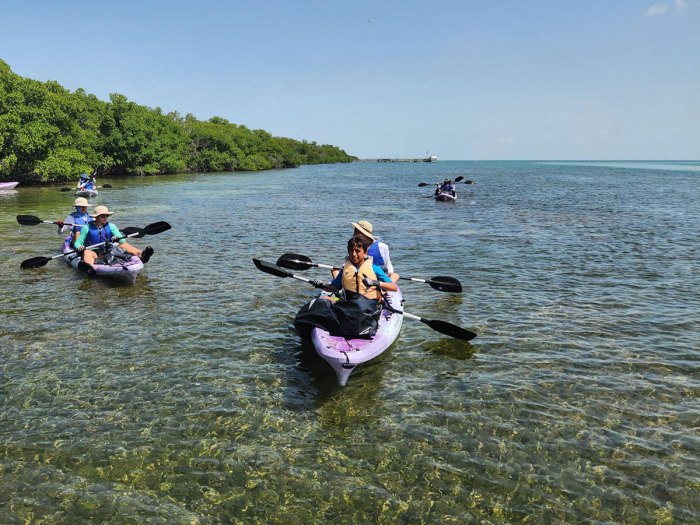
At Sea Base, a Scouting America high-adventure base in the Florida Keys, Scouts use kayaks to collect trash from hard-to-reach areas.
Scouting America’s latest conservation program is all about our rivers, lakes, streams, creeks and oceans.
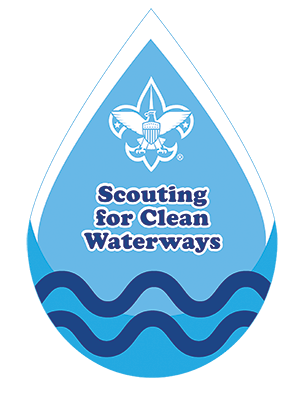 Scouting for Clean Waterways is a nationwide Scouting effort designed to keep our water clean. It starts on Earth Day (April 22). Scouts of all ages in all locations can participate. Even if you don’t live near a giant body of water, chances are that some of the trash in your community will eventually end up in the water somewhere anyway.
Scouting for Clean Waterways is a nationwide Scouting effort designed to keep our water clean. It starts on Earth Day (April 22). Scouts of all ages in all locations can participate. Even if you don’t live near a giant body of water, chances are that some of the trash in your community will eventually end up in the water somewhere anyway.
The requirements are simple:
- Cut down on your use of disposable plastics in your everyday life.
- Beginning on Earth Day, participate in a cleanup project near a river, canal, lake, stream, swamp, beach or other waterway in your community. If there is no body of water near you, any trash pickup project will do!
- Grab a trusted adult and share details of the project on social media using the hashtag #CleanWaterScouts.
- Make sure your adult leader logs the details of the cleanup on the Debris Tracker app from the National Oceanic and Atmospheric Administration. Download the app at debristracker.org
If a Scouting for Clean Waterways project is done at one of Scouting America’s high-adventure bases, CleanHub — a nonprofit organization dedicated to cleaning up the world’s oceans — will remove that same amount of trash overseas, doubling the impact on the environment.
Scouting for Clean Waterways in the Florida Keys
Scouts from Troop 269 in Fremont, California, attended a Sea Base program in the Florida Keys last summer, during which they participated in a sneak peek of the Scouting for Clean Waterways program.
Some of the Scouts took part in a cleanup service project at Big Munson Island, where Scouts who visit Sea Base can spend the night. Even though no one lives there permanently, trash still makes its way to Big Munson, possibly from other parts of the Keys. The Scouts had to walk in, around and through sargassum — a type of seaweed found on the island that can get hot and stinky, especially when it’s full of trash.
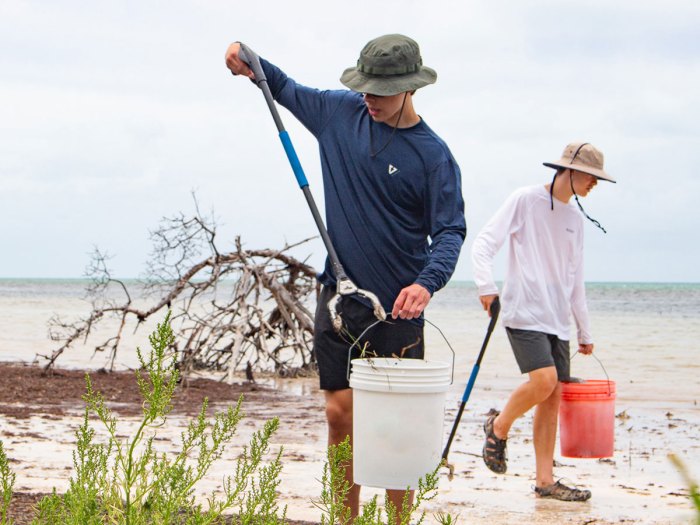
If you live near a beach or lake, picking up trash from the shore is a great service project!
At another location, Scouts used kayaks to collect trash from hard-to-reach spots.
“We went around in kayaks picking up garbage that was stuck in the roots of the mangrove trees,” says 17-year-old Eagle Scout Ben Kroeten. “It felt great to participate in this project because it helps protect the wildlife for others to see and enjoy.”
It wasn’t an easy job, but that’s part of what made it so special.
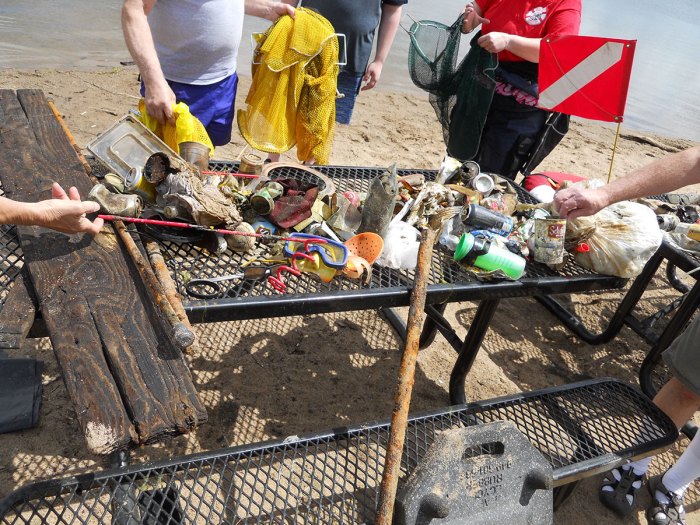
“The experience was both challenging and rewarding,” says Zachary Kroeten, 13, a Star Scout. “It was challenging because some of the items we had to clean up were quite difficult to move. However, it was also fun working together with the team to make a positive impact on the environment.”
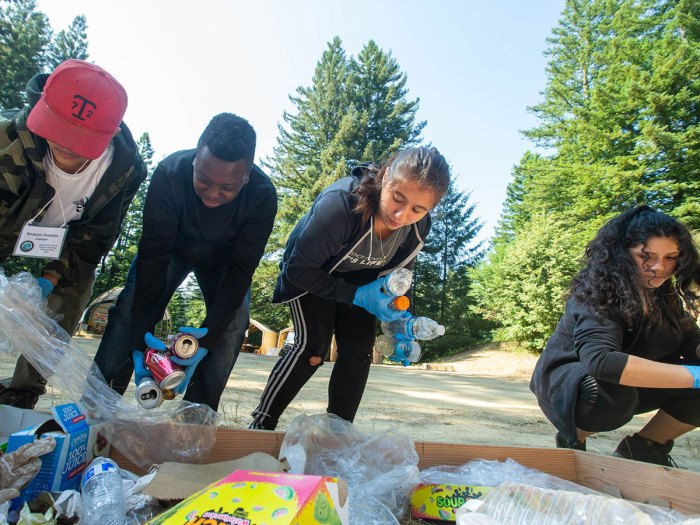
Scouts can participate in a Scouting for Clean Waterways project with their families or Scouting unit.
A Scuba Adventure to Clean Lake Phalen
Venturing Crew 820 in Saint Paul, Minnesota, spends most of its time scuba diving. Each year, they participate in a local cleanup effort at Lake Phalen. That project makes them eligible for future Scouting for Clean Waterways awards.
“I was able to help the lake system by removing unwanted garbage from the lake bottom,” says 19-year-old Eagle Scout Alex Kindseth.
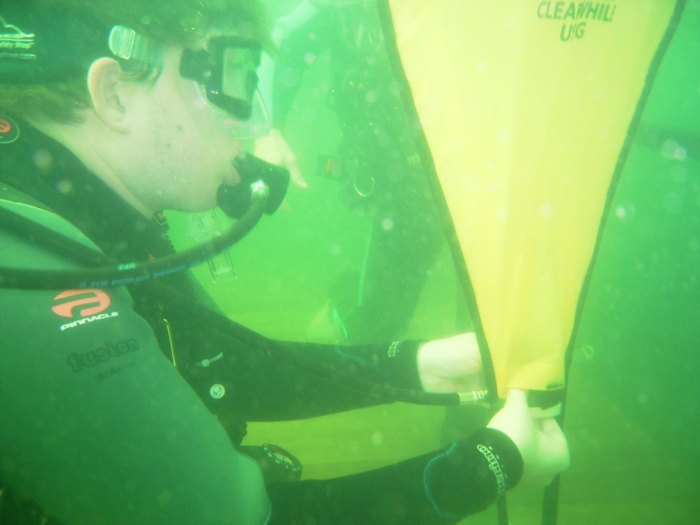
Scuba divers from Venturing Crew 820 use inflatable bags to help them lift heavy items from the bottom of a lake.
In addition to plastic, Crew 820 has pulled up all kinds of nasty trash from the lake. They remove heavier items like tables and boat rudders by attaching inflatable bags to them to help them float.
“This lake and park are used by many children and families,” Alex says. “We need to keep our water systems clean. Not having clean water affects everyone.”
WHAT’S SO BAD ABOUT PLASTIC?
Some conservation experts say as much as 33 million pounds of plastic is dumped into our oceans each year. Millions more pounds are dumped into rivers, lakes, streams, swamps and associated waterways.
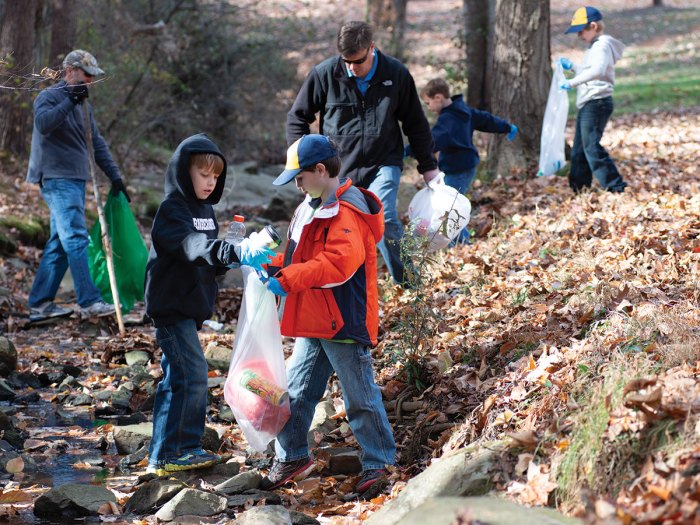
Much of the trash that people leave in neighborhoods, parks and on the sides of roads ends up in our waterways. Picking up trash in your community is a great way to help!
They calculate that more than 1 million marine animals are killed each year due to plastic marine debris. Also, waterways and marine debris pollute soil. Animals then ingest that pollution, and humans eat those animals.
It takes hundreds of years for plastic to decompose on its own, which means we need more humans to help clean it up!
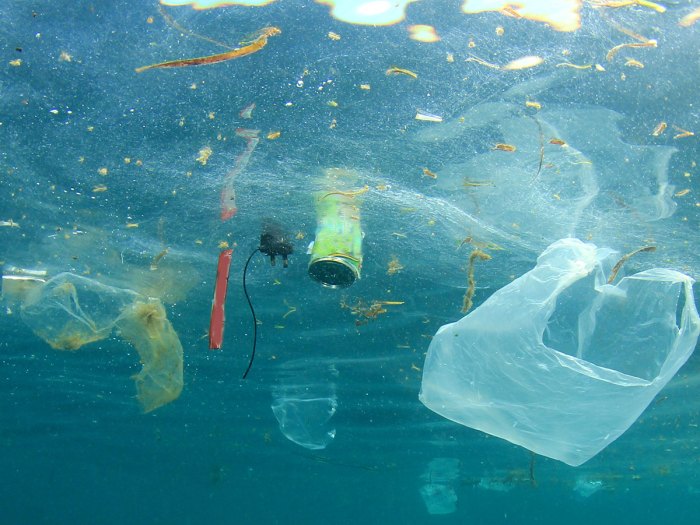
Learn more about Scouting for Clean Waters at go.scoutlife.org/cleanwaterways
Leave a Comment